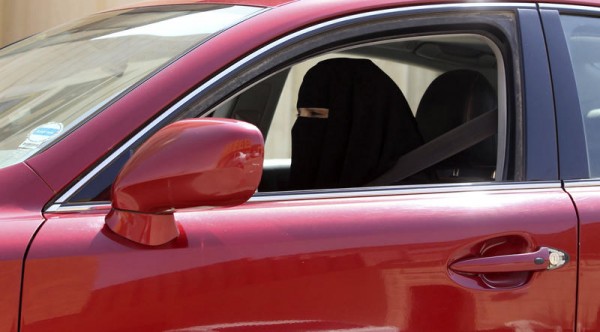
Ahead of US President Barack Obama’s visit to Saudi Arabia last week, two Shura Council members reopened the discussion on women driving in the kingdom.
Women in Saudi Arabia at present are not allowed by law to drive a vehicle, earning Saudi Arabia the dubious distinction of being the only country in the world with this statute.
But that has not stopped the activism by both men and women to overturn this law. There have been several campaigns in the past couple of years led by female activists and fuelled through social media channels that had attracted a lot of publicity both domestically as well as globally. Many countries to this day fail to understand how Saudi Arabia, which is spending massively to advance its infrastructure and educate its growing population, continues to deny women this basic right.
The opposition to women drivers has long been documented by members of the religious police and the kingdom’s powerful conservative establishment. They are the staunchest bastion of opposition when it comes to women’s issues and empowerment, and many of them have gone on record as saying that giving women the freedom to drive is a “swift path to vice and social degradation”.
Unnatural culture of dependency
Critics argue that this law has created an unnatural culture of dependency on millions of male expatriate drivers, many of whom are driving for the first time in their host country. Furthermore, it exposes the vulnerability of women seated in the close confines of a vehicle with a perfect stranger, something they argue is not in line with what Islam promotes. Add to that the social and cultural disparity as a result of this large group of unskilled expatriates that reside in practically every home, and the kingdom’s social development takes a back seat — as do women.
It is also no surprise that whenever the kingdom is criticised on its human rights record by the global media, the driving ban on women is at the forefront — enough to prompt two members of the Shura Council to give it another go and push to have the ban abolished.
Shura member Haya’a Al Minai stated last week that she was proposing to amend Article 36 in the Traffic Law to state that driving is an equal right for men and women. She said: “I hope that our proposal to amend the Traffic Law will be voted on in the next Shura Council meeting. Giving women the right to drive will increase their productivity.”
Referring to the success of women in the first municipal elections held last December, which included female candidates, Al Minai said that it was “proof that women have the potential to contribute to the development of the kingdom. [Having] women occupying leading positions is no longer considered a taboo. As long as women conform to the Islamic regulations and the Traffic Law, they should have the full right to drive. Women’s right to drive was proposed three years ago but the Shura Council voted against it. However, I expect a different result this time around,” she added with some confidence.
‘Doing our jobs’
Latifa Al Shaalan, another female Shura member had similar views. “It is time that the council takes another look into a problem facing half the Saudi population and earnestly and objectively address it with the passage of the ‘right to drive’ for women in our country. This council represents the needs of all the Saudi people and I feel we are not doing [our] jobs if we do not raise this issue for general discussion and hopefully for a successful resolution,” she added. Saudi women in particular have been buoyed by the aspirations of Deputy Crown Prince Mohammad Bin Salman Bin Abdul Aziz, who was recently quoted in an interview as saying that “Saudi society is proud of its mothers, daughters and sisters and it does not discriminate or undermine their capabilities to be pioneering members of society. A total of 20 women won municipal council elections this time. More and more women are working in various sectors and industries. A Saudi woman is now able to have any job she wishes in any sector and field of work. We do not have any obstacles.”
Many understood his words to mean that the shackles of yesteryear are ready to fall.
It will take some time for us to get used to seeing women in Saudi Arabia behind the wheel. But to get used to it, we need to allow it first. Society initially rejected the education of women, satellite dishes, the internet and mobile phones, but that is in the past. Let the same action be said of women and the driving ban.
As one Saudi writer aptly out it: “The time may come when we tell our grandchildren that once upon a time women were not allowed to drive in our country, and they will laugh at us in disbelief.”
Tariq A. Al Maeena is a Saudi sociopolitical commentator. He lives in Jeddah, Saudi Arabia. You can follow him on Twitter at www.twitter.com/@talmaeena.
Gulf News

Leave a Reply
You must be logged in to post a comment.